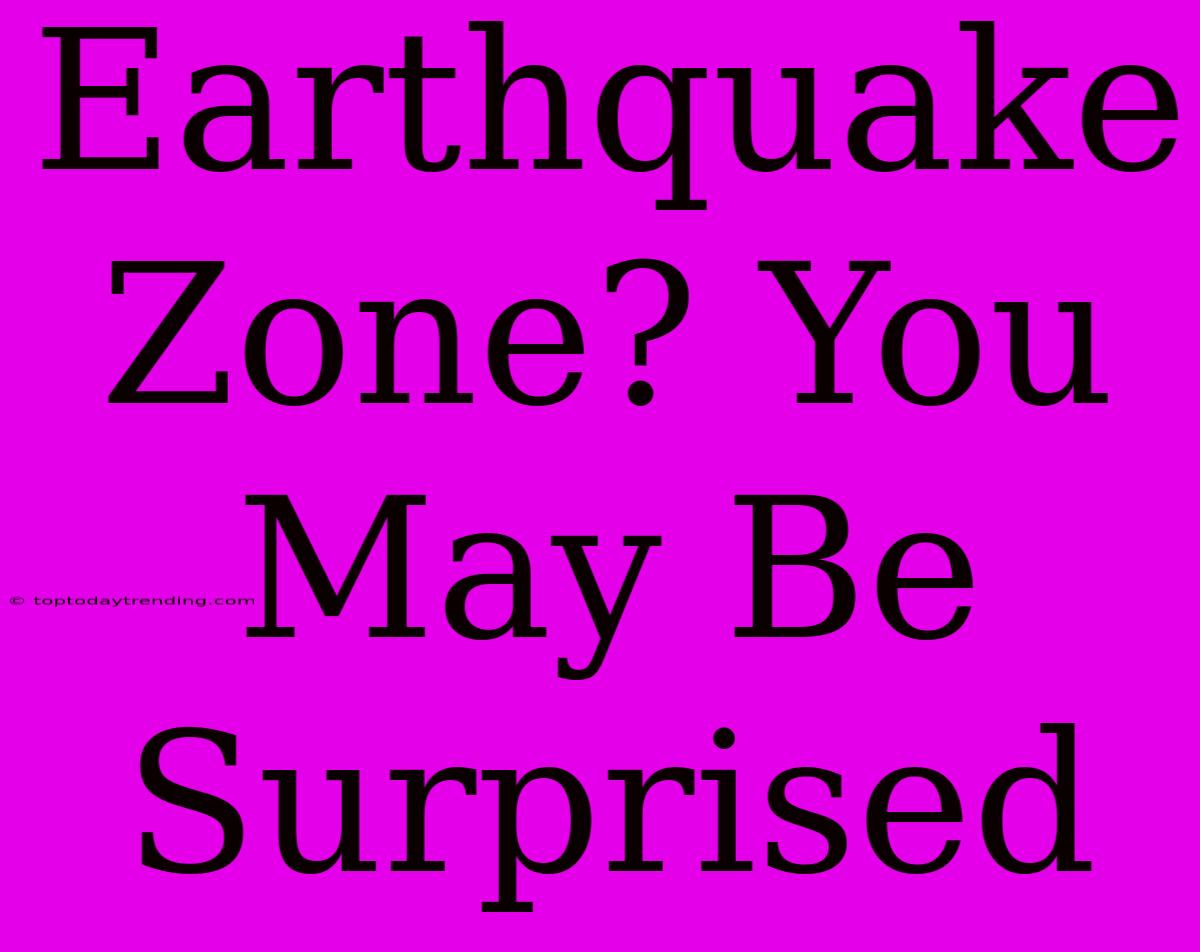Earthquake Zone? You May Be Surprised
Earthquakes are a powerful and destructive force of nature. They occur when tectonic plates, the giant pieces of Earth's crust, shift and collide. While we often think of earthquakes as a problem primarily for countries located on the "Ring of Fire" or other known seismic zones, the truth is that most of the world's population actually lives in areas that experience at least some level of seismic activity.
You may be surprised to learn that your city or town, even if it's not located on a major fault line, might be more vulnerable to earthquakes than you think.
Here's why you should be paying attention:
1. The Earth's Crust is Constantly Moving
While we may not feel it, the Earth's tectonic plates are always shifting and interacting. This means that earthquakes can happen anywhere, even in areas with no previous history of major seismic events.
2. Hidden Fault Lines
Many fault lines are not visible on the surface and can remain undiscovered until an earthquake occurs. These hidden fault lines can pose a serious risk to communities that are unaware of their presence.
3. Induced Seismicity
Human activity, such as fracking, drilling, and wastewater injection, can trigger earthquakes. This phenomenon, known as induced seismicity, has been observed in various parts of the world and raises concerns about the potential for seismic activity in areas previously considered stable.
4. The "Seismic Gap" Concept
The seismic gap concept suggests that areas with less recent seismic activity may be overdue for a major earthquake. This is because these areas may be storing up stress that could be released in a powerful earthquake.
5. Building Codes and Seismic Safety
Even in areas with less frequent earthquakes, the risk of damage and injury can be significant if buildings and infrastructure are not designed and built to withstand seismic forces. Outdated structures or those not constructed with proper seismic safety standards can be vulnerable to collapse during earthquakes.
What Can You Do?
- Learn about the earthquake risk in your area. Contact your local emergency management agency or geological survey for information.
- Prepare an earthquake kit. This should include water, food, a first aid kit, a flashlight, and a battery-powered radio.
- Secure heavy objects in your home. Shelves, cabinets, and mirrors can be dangerous during an earthquake.
- Practice earthquake drills with your family. This can help you know what to do if an earthquake occurs.
Being aware of your risk and taking steps to prepare can make a significant difference in your safety and well-being during an earthquake. Remember, earthquakes can happen anywhere, and it's always better to be prepared.

